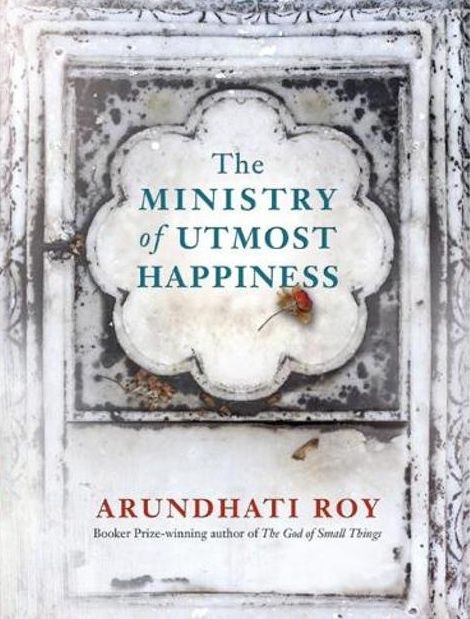After 20 years, Booker prize winning Indian novelist, Arundhati Roy's second fiction novel, "The Ministry of Utmost Happiness," is set to be released on June 6.
RELATED:
Arundhati Roy Returns Prestigious Prize over Religious Violence
The over 400-page long novel is primarily set in India's capital, New Delhi, Roy's home base for over 30 years. The novel is interwoven with a plethora of economic, religious and cultural realms across the Indian subcontinent, reaching as far away as Iraq and California, “each of them in search of a place of safety in search of meaning, and of love,” says the book's cover description.
Some of the prominent characters in the book who Roy refers to as “mad souls” are residents of a graveyard on the outskirts of Old Delhi, a baby on a sidewalk, a bereaved father writing a letter to his deceased daughter, a lone woman reading through old notebooks in her apartment and a couple at a guest house.

Born in 1961 as Suzanna Arundhati Roy, her mother, Mary Roy was a social activist, in a small village town in Kerala, where she ran an informal school named Corpus Christi and it was there Roy developed her intellectual abilities, free from the confines of formal education.
Roy, who has been called "the conscience of the country," came out with her first fiction novel, "God of Small Things," in 1997, which took four years to complete. It was hailed as the most insightful, intrepid narrative laying bare the life Roy knew well where she chronicled facets of communism, the Indian caste system and Kerala's Syrian Christian way of life.
ANALYSIS:
No Country for Women: India Enters 2017 with 'Mass Molestation
Like her first novel, Roy's second novel heavily draws on local Indian languages. Words from Hindi, Urdu, Sanskrit and all kinds of English are interwoven in the novel that lends the authenticity to the prose of the novel.
In an interview with Vogue, Roy explained that she didn't want to dive into writing another novel just after the success of her first. Instead, she became one with the issues inflicting India. "I began a journey into worlds that I’ve spent the last 20 years writing about," Roy told Vogue.
After the release of her first novel, Roy continued writing. Influenced by ongoing political turmoil in India, her writing took the form of hard-hitting essays, exposing government's wrongdoings and tales of inaction, for which she was often criticized by the affected parties.
But Roy became more resolute and upfront in her writings and over the course of 20 years, has penned powerful essays dissenting the Indian government.
In 1998, when India tested its nuclear prowess in Pokhran, the northwest desert region bordering Pakistan, Roy condemned the government's act.
“Unexpected people were celebrating it,” she told Vogue. “I knew if I didn’t say something, it would be assumed that I was part of the celebration.”
Inspired by the event, Roy penned a searing essay, "The End of Imagination," that spoke about the high risks of nuclear saber-rattling that was first published in local Indian magazines.
Roy, who studied architecture in Delhi, also authored "Listening to Grasshoppers: Field Notes on Democracy" and "Capitalism: A Ghost Story," which shine a light on the dark side of Indian democracy, examining some of the overwhelming issues plaguing the country like religious bigotry and cultural nationalism.
Her essay, "Walking with the Comrades," penned in 2010, shed light on the government's disservice to the underserved tribal community of Naxals in India. Her writings have often garnered support and have even sparked international public petitions, forcing the government to action.
In 2005, Roy was invited to sit on a war crimes tribunal in Istanbul after the U.S. invasion of Iraq.
In 2015, when the German chancellor Angela Merkel paid a state visit to India in 2015, she too requested a meeting with Roy. “Sister Roy really is an internationalist connecting what’s going on in one corner of the globe with what’s going on in another," Merkel said.